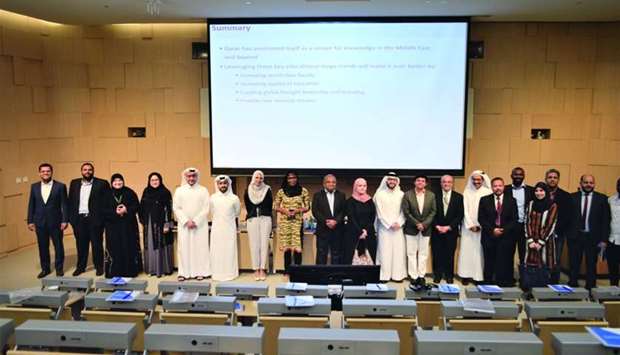The lecture was delivered by Prof Imran Sayeed, who teaches entrepreneurship and innovation at MIT Sloan School of Management in Massachusetts. Prof Sayeed has undertaken multiple projects and businesses throughout his career, the most prominent of which being NTTData - a technology consultancy firm that he founded and grew into the sixth largest of its kind in the world with 110,000 employees in 50 countries and $16bn in revenue.
Prof Sayeed’s latest endeavour has been co-founding Teach the World Foundation, which has a singular mission to employ digital technologies to increase literacy rates around the world. His current focus is on children in refugee camps, remote communities, and those with restricted access to education as a result of limited resources.
Prof Sayeed spoke about key models of technology and businesses that are transforming the way educational content is developed, taught, and consumed. The scope of the lecture was in line with CIS’s mandate to provide applied Islamic programs that are unconventional and interdisciplinary, while using innovative teaching tools and creative mediums.
“Having looked at education systems around the world, I feel that Qatar Foundation and the universities here are in an incredible position to be able to leverage new technologies and business models. They are best-positioned to create a leadership position in the development and dissemination of education around the world,” he said.
Dr Emad El-Din Shahin, dean of CIS, noted: “Prof Sayeed’s insights into the current transformation of the global education sector encouraged attendees to re-evaluate the way education and learning are viewed, especially compared to traditional teaching methods. CIS continually assesses its programs, and the ways in which they are delivered, and these advancements present exciting opportunities for us as we explore new approaches to teaching and application. The college has a special directive to be innovative in advancing academic as well as community-based learning by fostering intellectual conversations and addressing themes that are worthy of worldwide interest.”

Attendees of the lecture
Advancing its mission of cultivating innovation in education, the College of Islamic Studies (CIS) of Hamad Bin Khalifa University (HBKU) recently hosted a lecture titled 'The Future of Learning', which examined how the education sector is rapidly evolving and changing the mediums by which we learn.
